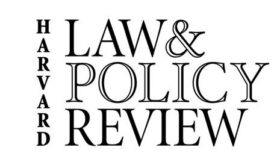Jay Willis
The California State Senate passed the Fair, Accurate, Inclusive, and Respectful (FAIR) Education Act this week, which would require California schools to include a study of the contributions of LGBT individuals within its standard history curriculum. The measure is expected to easily clear both the Democrat-controlled State Assembly and the desk of Governor Jerry Brown.
Since controversy over the official treatment of homosexuality in California is nothing new, most of the debate over this bill has predictably focused on similar ideological concerns. State Senator Doug La Malfa expressed his concern that, if the FAIR Education Act is passed, “Kids would have to contemplate [sexuality] at a very, very early age, when many of us [parents] are teaching abstinence.” A member of the Sacramento school board similarly opined that the measure “legislat[es] morality” and “require[es] taxpayers to foot the bill to promote a lifestyle to which they may or may not be morally opposed.”
However, the text of the measure hardly mandates the imposition of a distinct “gay history” that would predominate over other areas of study, as some news headlines might suggest. Existing California law already requires schools to include “a study of the role and contributions” of women and a multitude of ethnic and cultural groups to California and U.S. history. This bill simply adds LGBT individuals (and the disabled, although there appears to be little controversy over this provision) to the list of underrepresented interests that the legislature has already determined should be included within the state history curriculum. And, incidentally, officially acknowledging the roles of LGBT individuals in the development of this country’s history could help significantly undermine the harmful stereotypes that have contributed to recent suicides attributed to anti-gay bullying.
More fundamentally though, studying the life and accomplishments of San Francisco politician Harvey Milk hardly amounts to a state-sponsored endorsement of homosexuality. On the contrary, including such a discussion would allow students to develop a better understanding of civil rights movements in the United States and provide valuable context for analyzing more recent developments, including the ongoing debate over Proposition 8 in California. We should not be censoring our history, especially aspects of it that remain particularly pertinent today, because of the personal objections of parents to the private lives of some of its players.
As Senator La Malfa notes, understanding LGBT civil rights will require that students have some basic understanding of homosexuality. But this principle is no truer in the context of sexual orientation than it is in the study of any other civil rights movement. It would be absurd to try and fully appreciate the life of Martin Luther King, Jr., for example, without first comprehending the meaning of race in the context of a society that once practiced slavery. Though confronting these issues may be uncomfortable for some, doing so is nonetheless necessary to develop a well-rounded knowledge of civil rights in the United States. California should be applauded for taking this important step in ensuring that the next generation of students appreciates the critical roles played by people from all backgrounds in the ongoing narrative of American history.
